Iran, South Korea Nowhere Near Release Of Tehran’s Frozen Funds
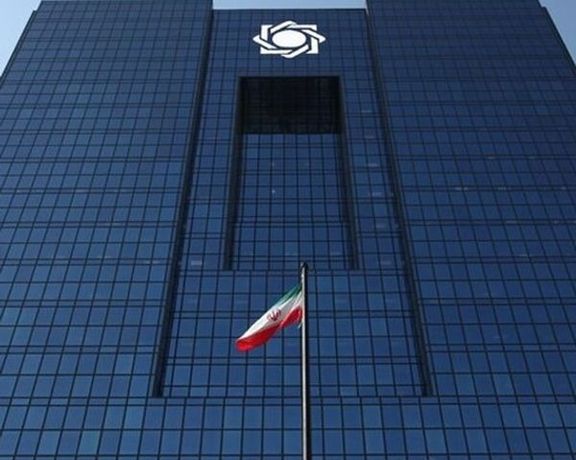
Despite the Islamic Republic's claims that its assets frozen in South Korean banks are about to be released, Iran International has obtained information that the money is still blocked.

Despite the Islamic Republic's claims that its assets frozen in South Korean banks are about to be released, Iran International has obtained information that the money is still blocked.
According to these documents, the vice president for legal affairs has asked the Iranian banks with blocked assets in South Korean banks as well as in the Seoul branch of Bank Mellat to cooperate in filing a lawsuit to unfreeze the money.
Letters were sent to 16 Iranian banks in September and follow-up letters to nine of them last month, asking them for prompt responses.
Ali Saleh-Abadi, the head of the Central Bank of Iran, said on Monday that the main obstacle in releasing the frozen funds is determining the recipient accounts to which the money would be transferred. He said there were some changes in the recipient accounts.
Every few months, especially when the Islamic Republic’s currency hits new lows against the dollar, Tehran announces that talks are underway with Seoul to free the blocked funds.
Iran, which sits on the world's fourth-largest oil reserves, was a key oil supplier to South Korea, and a main importer of goods such as industrial equipment, household appliances and vehicle parts. Seoul stopped purchasing Iranian oil in May 2019 due to US sanctions that ban the Islamic republic's oil exports.
Bilateral relations between Seoul and Teheran remain frayed after two South Korean banks locked $7-9 billion of Iranian funds owed for oil imports because of US banking sanctions, which were reimposed after former President Donald Trump in 2018 withdrew from the deal.
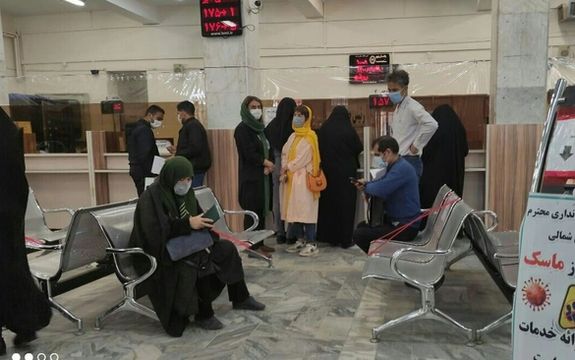
One of the new ways Iranians are causing trouble for the regime is through removing their money from banks, forcing them to limit large withdrawal amounts.
Several videos have surfaced on social media showing people quarreling with bank clerks or officials who say they do not have enough cash for withdrawals.
Having lost their trust on the Islamic Republic’s embattled currency after a steep fall with no prospect of bouncing back, many Iranians want to remove their money from banks to exchange them for foreign currencies or gold.
Iranian political activist, lawyer and Nobel Peace Prize laureate Shirin Ebadi urged people on Sunday to join the campaign of withdrawing money from banks, noting that state-controlled banks in Iran are not institutions to serve the people and only act as the economic arm of the “killing Republic” referring to the clerical regime. "Now it has been proven to everyone that there is no will in the regime to accept the demands of the people," she said, adding that the campaign to shun banks in daily transactions can deal a "fundamental blow" to the government.
Criticizing the government’s economic policies, Iran's former central banker, Abdolnaser Hemmati, said Tuesday that the administration of President Ebrahim Raisi was so sure about the revival of the 2015 nuclear deal that it moved to stop the indirect subsidy for essential goods, triggering more inflation. He said that now that the deal seems doomed to fail and the currency has lost its value dramatically, the authorities are looking for ways to remedy the dire situation.
The government stopped offering cheap dollars to importers of essential goods earlier this year to save around $15 billion annually. The move immediately doubled and tripled food prices and led to shortages of medicines, medical equipment and animal feed.
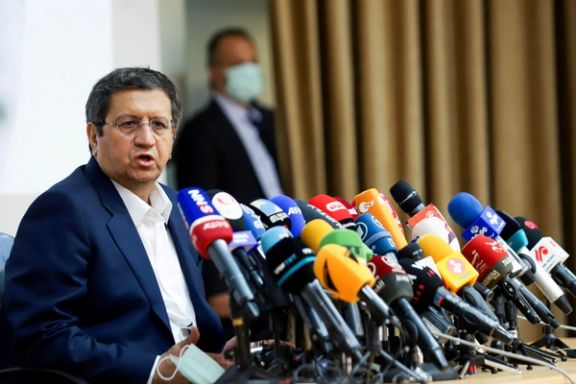
Hemmati, who was a presidential candidate in the 2021 election and held heated debates with Raisi, addressed him, saying that “if you knew the problems and had solutions for them, why don’t you do anything? And if you just want to blame your predecessors, why did you even bother to run for office?”
Unfortunately for Raisi, the famous anecdote about an outgoing manager imparting his wisdom to the new one in the form of three sealed envelopes would not work here. The outgoing manager told the new one that the first time things go wrong, open the first letter. Open the second letter for the second incident and open the third letter for the third incident. “Blame Your Predecessor!” was written in the first letter, which Raisi has been doing since the day he took office. “Blame Your Employees!”, read the second one, which is a strategy exhausted by the current administration. The third letter instructed the manager to “Prepare three Letters!”, something Raisi has not done yet because he has no scapegoat ready yet as the next election is in more than two years.
In addition to critics of the government, a 25-percent fall in the value of Iran’s currency in three months and a more than 50-percent drop in 15 months has led to sharp criticism even among conservatives. Conservative politician Mansoor Haqiqatpur has accused Raisi of sharply reducing the value of assets held by rich and ordinary Iranians.
“Less than 18 months ago, when Raisi took office as the President of the Islamic Republic one US dollar was equal to 230,000 rials in Tehran markets. Now the value of every US dollar is over 380,000 rials. The devaluating Iranian currency is now as cheap as straw. This means Iranians have lost half of their assets during this period." In fact, since Haqiqatpur spoke the rial has dropped further and on Tuesday it was close to 400,000 against the US dollar.
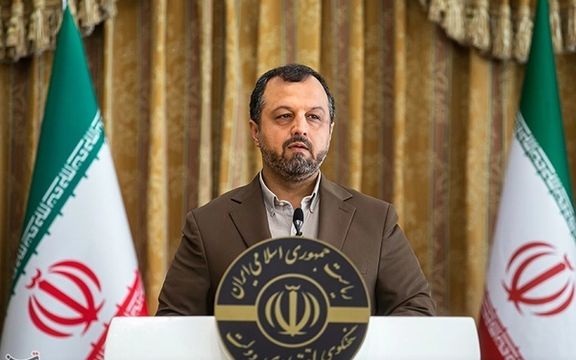
Ehsan Khandozi, the government spokesman for economic affairs who doubles as the minister of economic and financial affairs, said on Tuesday that Supreme Leader Ali Khamenei has agreed to dedicate 11 trillion rials (or about $31.4 million) from the National Development Fund to the government’s treasury to be used for its unfinished projects. He added Ali Khamenei has also given the go-ahead to bartering oil in exchange for railroad and transit projects across the country.
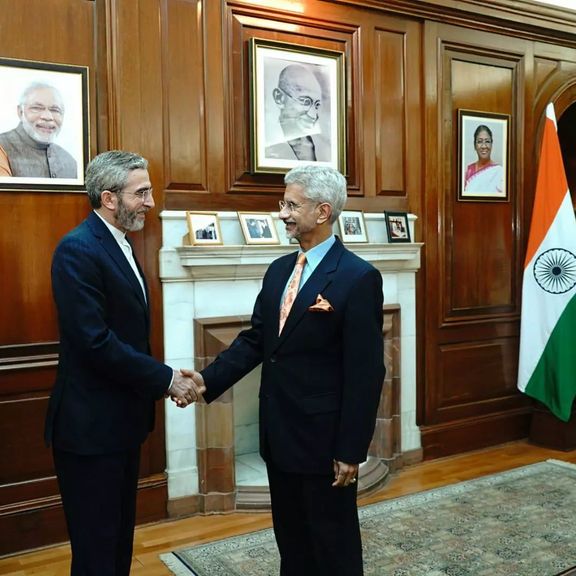
Indian media say Tehran has offered New Delhi a strategic cooperation pact similar to the deal it signed with China in 2021.
Livemint website quoted two people aware of the matter on Monday as saying that the sanctions-hit country tries to attract Indian investments to develop its transport and energy infrastructure.
Based on the report, Ali Bagheri Kani, Iran’s deputy foreign minister confirmed the offer in his meetings with a group of experts during his visit to New Delhi last month.
Details of the proposed India-Iran pact are not yet clear. However, the matter is being considered by the Indian ministry of external affairs, sources added.
According to Indian media, a new pact with oil-rich Iran will help the world’s third largest oil consumer deal with high energy prices.
The Iranian regime’s Supreme Leader Ali Khamenei has been pursuing ties with China and Russia as he continues opposing normal relations with West.
The long-term deal Iran signed with China is wrapped in mystery and so far has had little practical results, as US sanctions
Iran's economy has been experiencing a sharp fall in the past four years and foreign investment has also decreased.
The violent suppression of the protests in the last three months has intensified the process of the withdrawal of Iranian and foreign capital and the devaluation of the country's national currency.
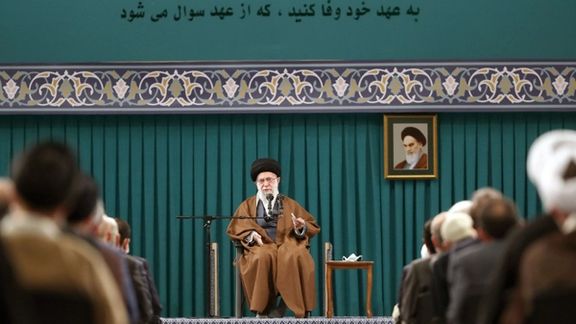
A 25-percent fall in the value of Iran’s currency in 3 months has shaken the Iranian government and led to sharp criticism even among conservatives.
Conservative politician Mansoor Haqiqatpur has accused the President Ebrahim Raisi’s administration of sharply reducing the value of assets held by rich and ordinary Iranians.
“Less than 18 months ago, when Raisi took office as the President of the Islamic Republic one US dollar was equal to 230,000 rials in Tehran markets. Now the value of every US dollar is over 380,000 rials. The devaluating Iranian currency is now as cheap as straw. This means Iranians have lost half of their assets during this period."
In fact since Haqiqatpur spoke the rial has dropped further and on Tuesday it is close to 400,000 against the US dollar.
The significance of this remark by a conservative who is a natural ally of President Raisi should not be taken lightly. In his interview with ILNA website, Haqiqatpur, like many other Iranian politicians, said that the Islamic Republic needs to update and upgrade its governance.
He charged that "the government in Iran does not follow a pre-planned path. We still do not know who is in charge of culture or identity. Who has to determine and engineer the identity of generation Z?" It appears that he still believes in strong government control even over the citizens' identity.
Haqiqatpur went on to say that "a new governance can help, but in some areas we need to change the Islamic Republic's constitution." This has become a fashionable catch phrase by some regime insiders after their political position was shaken by nationwide protests.
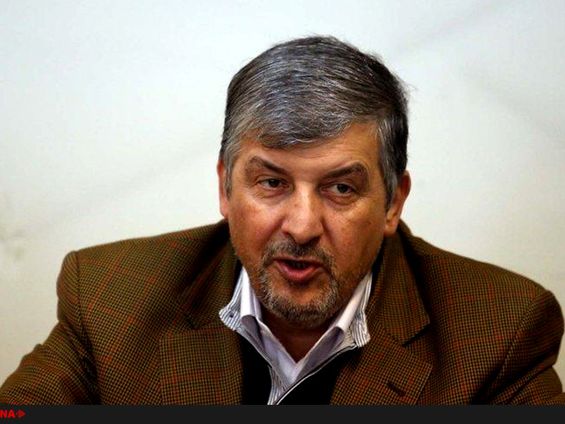
But like other Iranian politicians and political observers he also ignored Supreme Leader Ali Khamenei's role in undermining the constitution and other laws of the country.
The main issue with the constitution is the overwhelming power of the Supreme Leader that is the commander of chief of the armed forces and the religious institutions of the clerical regime. Therefore, he easily augments his powers, making other constitutional institutions like the presidency irrelevant.
Insiders shy away from saying that the Islamic Republic is a dictatorship and Khamenei is the only one who has the final say even in the people's private lives. How many children they need to have, what they need to wear and what they are allowed to watch on television. He even did not consult the parliament when he decided to deploy troops to Syria to save another dictator or to send weapons to Russia to assist with Putin's ambitions in Ukraine.
Three Iranian presidents, Mohammad Khatami, Mahmoud Ahmadinejad and Hassan Rouhani begged Khamenei to change a couple of articles in the constitution to allow for some reforms, but he arrogantly silenced them.
However, Haqiqatpur was brave enough to criticize the Guardian Council for its unilateral decisions to allow some politicians to run for parliament and to disqualify others without offering any explanation for its decisions. But he also said that some of the articles of the constitution including the powers of the Supreme Leader are unchangeable. Without that clarification, his words would not have been published in Tehran.
However, it was easy for him to attack Raisi as a soft target.
Iranian academic observers spoke along the same line in a gathering to probe into the idea of progress and development in Iran." Social scientists Hadi Khaniki, Ahmad Meydari and Mohammad Fazeli concluded at the gathering in Tehran that "many of Iran's problems today are because of the limitations imposed on political participation. When there is no political participation, there will be political decline," they said.
The academics further agreed that the only way out of the current crisis in Iran is recognizing the role of dialogue in social processes. Meanwhile they paid tribute to Iranian political economist Professor Majid Tehranian who had predicted the Islamic revolution in 1976, three years before it took place. "But no one heard him," Said Khaniki.
Fazeli added that "if Iranian politicians refuse to pay attention to the route Iranian government took in the 1970s, and Iranian leaders avoided contact with the public, they are likely to make the same mistakes as their predecessors."
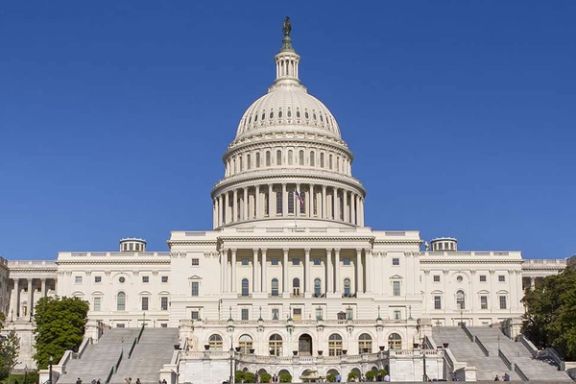
A bipartisan group of US lawmakers have proposed legislation to refuse visas and revoke any issued to Iranian regime insiders and their families.
The initiative is dubbed Revoking Entry Granted to Iranian Mullahs and Elites Act of 2022 or REGIME Act. It would target not only those officials responsible for repression and crackdown on protesters but also their immediate family members, Al Monitor reported Monday.
The legislation would direct the Secretary of State to conduct a review of whether a wide-ranging group of Islamic Republic officials – including members of the Revolutionary Guard (IRGC), Supreme Leader’s office and security forces – and their family members are in possession of US visas or have applied for them.
The legislation is led by Reps. Joe Wilson (R-S.C.), Josh Gottheimer (D-N.J.), Claudia Tenney (R-N.Y.), and Vicente Gonzalez (D-Texas).
It is not clear what sorts of US visas will be impacted if the legislation is adopted. Already, some individuals fitting the criteria might have obtained US permanent residency or even became naturalized citizens.
These individuals can apply for visas for their immediate family members according to US immigration law.
Recently, Canada also issued regulations banning entry for 10,000 IRGC members and possibly people affiliated with Key elements of the Iranian regime.
“In light of the actions of the regime it is particularly unbelievable that Iranian officials and family members are being given visas to come to the US to enjoy the very liberties their own citizens can only imagine,” Wilson told Al-Monitor.

The Dutch striker of a popular football club in Iran has left the country amid the security concerns over the safety of foreigners.
Hours after the sudden departure of Jurgen Locadia, the striker of Tehran’s Persepolis club, it was announced that he did not leave Iran because of his wife's illness, as reported, but "for other reasons".
At the same time, reports say Locadia was concerned following the Dutch government’s warning to its nationals not to remain in Iran.
Locadias communication with his family had become very tough due to the state of the Internet in Iran, some other reports added.
Tasnim news agency quoted Persepolis club as saying that footballer told the club managers that he should leave Iran due to family problems and his wife's illness.
When he faced resistance by the team managers, he left Iran quickly on the eve of an important derby match in Tehran.
The managers of Persepolis said the player's wife is not sick and there are probably other reasons they are not aware of, added Tasnim.
Since the beginning of nationwide protests in Iran in the past three months, other European countries such as Germany, France and Belgium have also demanded the immediate departure of their citizens from Iran.
The 28-year-old striker was a member of VfL Bochum last season.